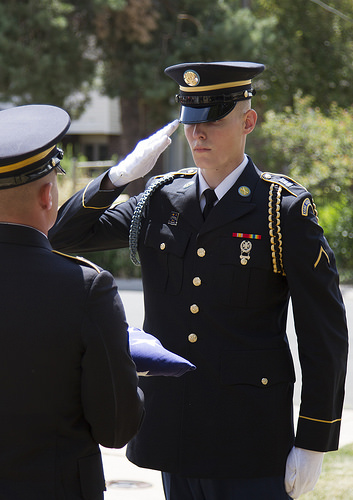Becoming a funeral director isn’t the most common dream of many. In fact, people who tell us they wish to become a funeral director someday often surprise us. However, the job never fails to fascinate us. For those of us who work as funeral directors have committed ourselves to helping countless families grieve.
Our work doesn’t isn’t just about being a mortician or helping families gather documents post-mortem. We become part of the service and immersed in it as much as we are capable of.
If you want to be a funeral director someday, there are things you need to keep in mind. Here are some tips for aspiring funeral directors as well as other useful information to help you make the decision.
- You will not be the grieving person’s cushion
Some aspiring funeral directors might think that they can become a family’s pseudo-therapist. Some believe that they will need to hold hands and be the grieving person’s cushion or shoulder to cry on. However, it doesn’t work that way. You’d be surprised how much more technical than sentimental the job can get.
Jeff Jorgenson is a seasoned funeral director who begs to clear the misconception. He explains: “Here’s the raw truth if you are one of these people: Families that come to the funeral home do not want you to hold their hand. If they wanted a therapist, they would call one. I’m not saying that it doesn’t take a special kind of grace, a ton of empathy and a pile of sensitivity to work with people when they are going through the process of loss. What I am saying is that they mostly want someone who can get them death certificates in a hurry and take care of cremating their loved one.”
- Apprenticeship is enough
Some become funeral directors by taking on an apprenticeship. Others do something else for a very long time until they realize being a funeral director is what they really want to do with their lives. However, some do go through intensive education and actually go to school to become one.
In Canada, there is such a thing called Canadian College of Funeral Service is Canada. The facility specializes in all things funeral service. There are requirements that need to be met, skills that have to be mastered as well as various studies students need to keep in mind. It can be no different from any course you wish to take as a student.
Jorgenson recalls, “Mortuary science schooling is no different than any other trade or, even academic, degree. The degree covers the sciences, body prep, funeral arts, and business and marketing. You either take out loans or work your way through it. If you are fortunate and diligent, you can get a position in a traditional funeral home so that you can get the view from the conservative perspective and learn the positives and many negatives in that world.”
- It’s not just about talking to families
Being a funeral director isn’t just about telling families what the requirements are for a certain service or what fees need to be paid for. The job description of a funeral director doesn’t stop there. According to Jorgenson, you can consider yourself as the “wedding planner” to someone’s funeral.
“If you are in a lower cost cremation house, you meet with families to collect information, prepare the death certificates, file them with the county, send cremation authorizations to the crematory and call the families to come get their loved one when the death certificates and remains are back,” he says.
“If you are in a more traditional funeral home, it really is more event planning. In addition to the things mentioned above, you need to do all of the things that make a memorial or funeral services happen. Flowers, catering, service stationary, and merchandise ordering (casket, vault urn) needs to happen. Coordinating with the cemetery and crematory are critical too. In short: project management. Oftentimes, you are coordinating the resources of the funeral home to see to it that the tasks are accomplished.”
- Patience is key
Even if you’re going to handle the majority of the logistics, you could be in for an emotional ride. You will deal with grieving people, and this can mean a lot of things that will test your patience.
Caleb Wilde, a prominent funeral director stresses the importance of patience when it comes to fulfilling your job. “Have you ever been around grieving people? At times grieving people act like they’re out of their minds. And, there’s times when grieving people can act … well … they act kinda crazy. And it’s their right. In fact, it’s the reason WE exist. Their world has been pulled out from under them, they haven’t a foot to stand on and everything that they used to know is suddenly … gone. And you’re here to help create semblance in the crazy,” he says. “And if you don’t have the patience to walk with a person whose mind is clouded with grief then funeral service isn’t for you.”


